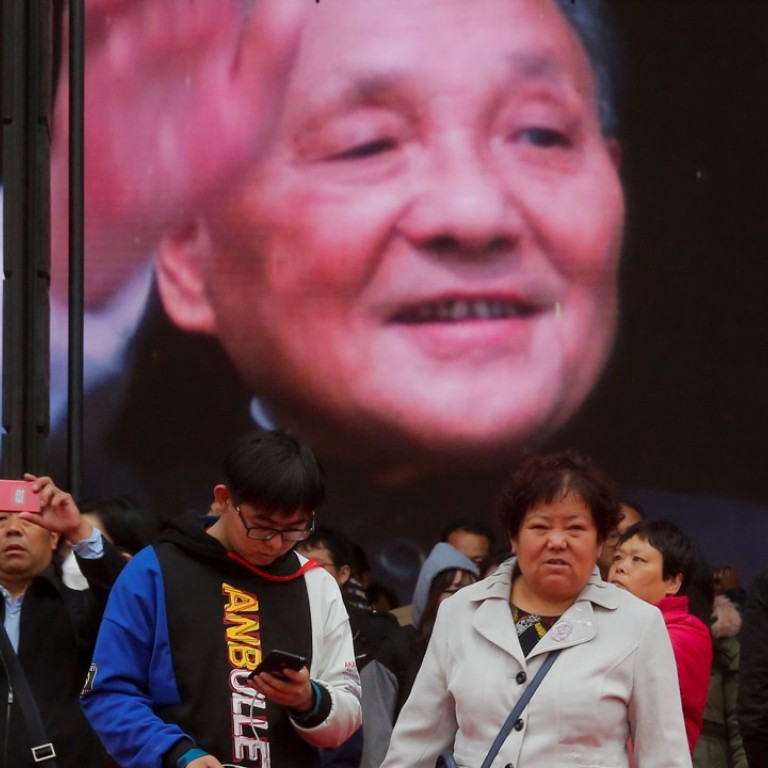
The vital importance of keeping the ‘special’ in the Special Administrative Region
- Hong Kong needs to cultivate its position as a protected zone between different worlds. Without it, the city is no use to China or the world
Deng Xiaoping promised that Hong Kong people would rule Hong Kong when the British left. We need to continue to take Deng at his word. Management at the Tai Kwun cultural centre’s flip-flop over whether novelist Ma Jian could speak looks like self-censorship. It’s this sort of looking over our shoulders, worrying about “up north” or “the western district,” as officials are fond of saying privately, that we don’t need, whether it’s in museums, government offices, universities or newspapers. This pre-emptive censorship is nothing new, but it’s bad news if it gets worse.
Scholar Perry Link has compared China’s system of repression to a cocktail reception with an anaconda in the chandelier. The snake doesn’t have to do much, it’s enough that everyone knows it’s there. “Its message is ‘you yourself decide,’ after which, more often than not, everyone makes his or her large and small adjustments – all quite ‘naturally’.”
Carrie Lam denies responsibility for cancellation of Chinese dissident’s talk
Well before the handover, the then CLP chairman Lawrence Kadoorie said that Hong Kong was like a three-legged stool. It could only prosper when it was useful to China, useful to Britain, and its leaders could provide hope and opportunity for young people. Kadoorie, whose family also controls Hongkong & Shanghai Hotels, made this point in 1981, when he was trying to figure out the future of his investments in the colony as the end of British rule loomed. He recognised that Hong Kong prospered as a place where the market system and communism could meet, “a neutral point of contact between two ideologies and two different systems of government”. His response was to double down on his investments, investing in the Castle Peak coal-fired power plant, one of the world’s largest.
We’ve gone from a British Crown Colony to a Chinese Special Administrative Region, but we continue to have our own currency, tax system, administration and membership in the World Trade Organisation and the World Health Organisation. It’s this concept of being a protected zone between different worlds that Hong Kong needs to cultivate. If we lose that, we are of little use to China or the world.
The British left a hard-working and competent administrative service. Unfortunately they didn’t train our civil servants to take charge. So we don’t have a cadre of true leaders, people who understand what’s needed to preserve Hong Kong’s unique way of life while still nurturing trust in Beijing. The danger is that in the desire to please Beijing – and we do need a strong relationship with China – our leaders forget that we are special. There is only one Hong Kong. Shenzhen prospered in these 40 years of reform because it is next to Hong Kong. Who remembers that three other Special Economic Zones were set up at the same time (Zhuhai, Shantou and Xiamen)? We don’t prosper by becoming just another city in China. Foshan has about the same population as Hong Kong. Don’t we have ambitions to be more internationally significant?
Is Deng Xiaoping’s ‘one country, two systems’ blueprint for Hong Kong working?
Hong Kong is important to China’s continued success. It is where currency can move freely, where the free flow of information has allowed Asia’s most global financial market to take off. Free flow of information and legal protections are key to that. That means even obnoxious opinions need to be tolerated.
Shanghai had grand ambitions to be an international financial centre by 2020. We don’t hear much about that ambition any more. It turns out that Hong Kong’s soft institutions, such as rule of law, administrative competence, civil liberties and a free-ish press, aren’t something that can be turned on like a light switch. Ironically, it’s to Hong Kong’s short-term benefit that China is lagging behind, even going backwards, on many institutional reforms. Hong Kong people need to remember that our freedoms are what makes this city special. The lines are narrowing, but if we’re cowed into compliance by the snake in the chandelier, it’s game over.
Mark Clifford is the executive director of the Asia Business Council

